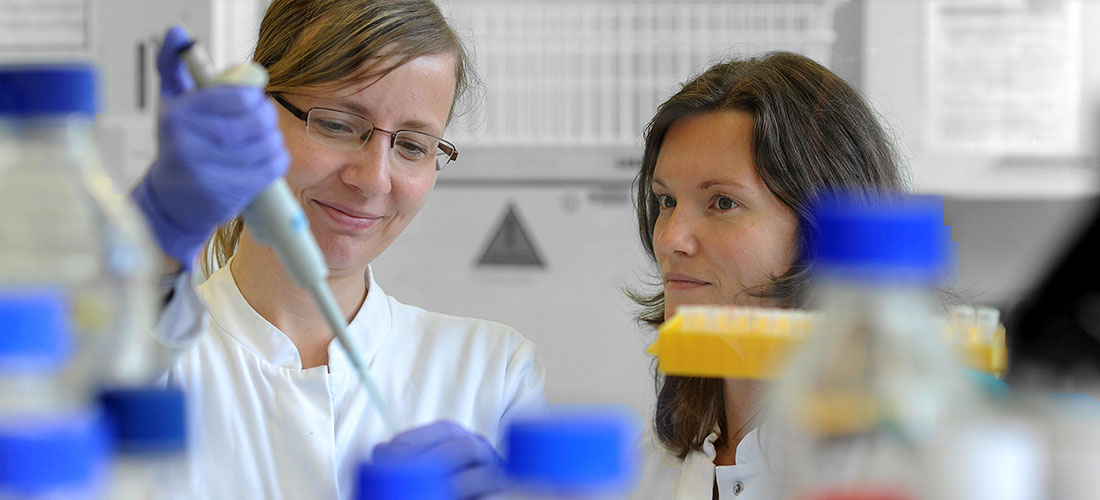A02: Dissecting chromatin accessibility and somatic mitochondrial DNA mutational landscapes in single cells during neuroblastoma evolution
Developing a holistic understanding and monitoring the processes driving tumor evolution is a major goal in cancer research to target and prevent metastasis formation and development of resistance. Deconvoluting intratumor heterogeneity has been the main starting point to assess tumor evolution from existing bulk data. To date, algorithms developed to differentiate among subclones have focused on point mutations, indels, structural variants (SVs), copy number variants (CNVs), or a combination thereof, in a rather isolated manner. To fully unravel complex tumor architecture and its somatic evolution will require the integrated deconvolution of the contribution of genetically distinct subpopulations and non-genetically determined heterogeneity (plasticity). We hypothesize that the integration of single-cell state readouts with clonal inference provides a powerful strategy to identify principles of clonal tumor population dynamics and their genomic heterogeneity. Project A02 will take this integrated approach using high-dimensional multi-omics data derived from single tumor cells and develop a complementary strategy to monitor clonal disease in liquid biopsies. Accessible chromatin landscapes will be described and used to decipher gene regulatory elements and transcription factor activities driving transcriptional circuitry in tumor and immune cells (Task 1). CNVs and mitochondrial DNA (mtDNA) mutations will be detected in parallel and used to reconstruct (sub-)clonal populations of the evolving tumors and their immune microenvironment (Task 2) and assess the contribution of mtDNA mutational landscapes to tumor heterogeneity (Task 3). Cell-free mtDNA will be isolated from peripheral blood to detect tumor clone-specific activity as a disease monitoring method and potential future means to facilitate targeted tumor therapy (Task 4). Our approach will resolve intratumor heterogeneity at the single-cell level through temporal disease evolution. Project A02 will advance our molecular understanding of neuroblastoma, is expected to identify disease characteristic genomic signatures, including at the clonal level, will scrutinize the role of mtDNA genotypes in modulating neuroblastoma cell phenotypes, and evaluate a complementary strategy to monitor tumor evolution in patients using liquid biopsies.
PhD positions and place of work: 2
1 wet-lab with interest in bioinformatics (PI: Leif Ludwig Berlin, BIH@Charité)
1 computational (PI: Laleh Haghverdi, MDC/BIMSB Berlin)



